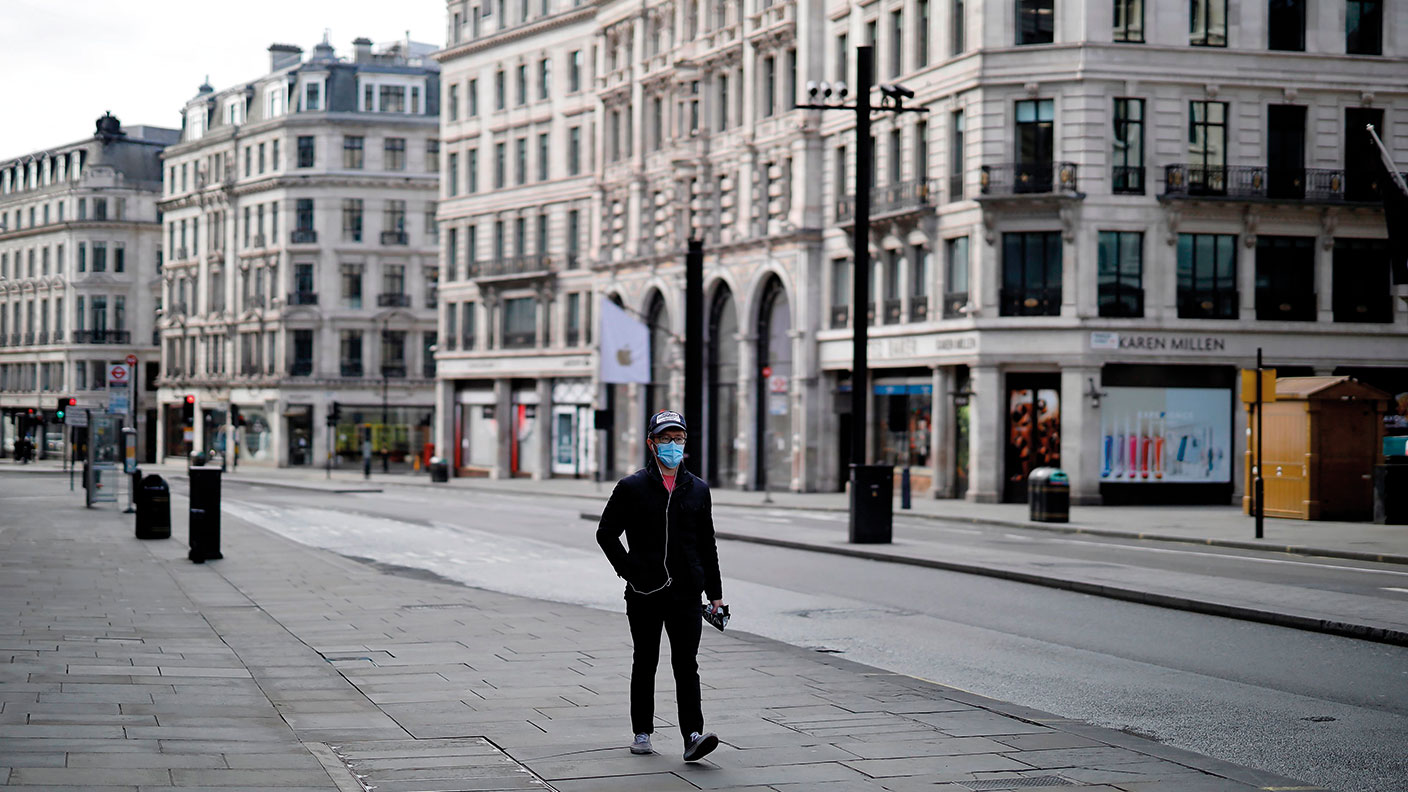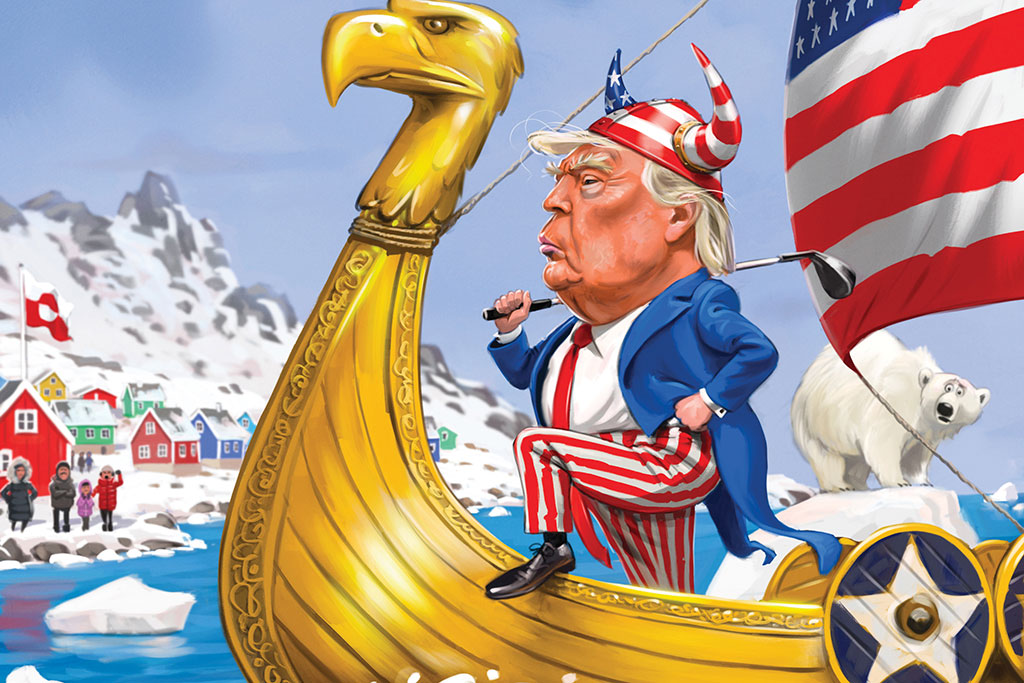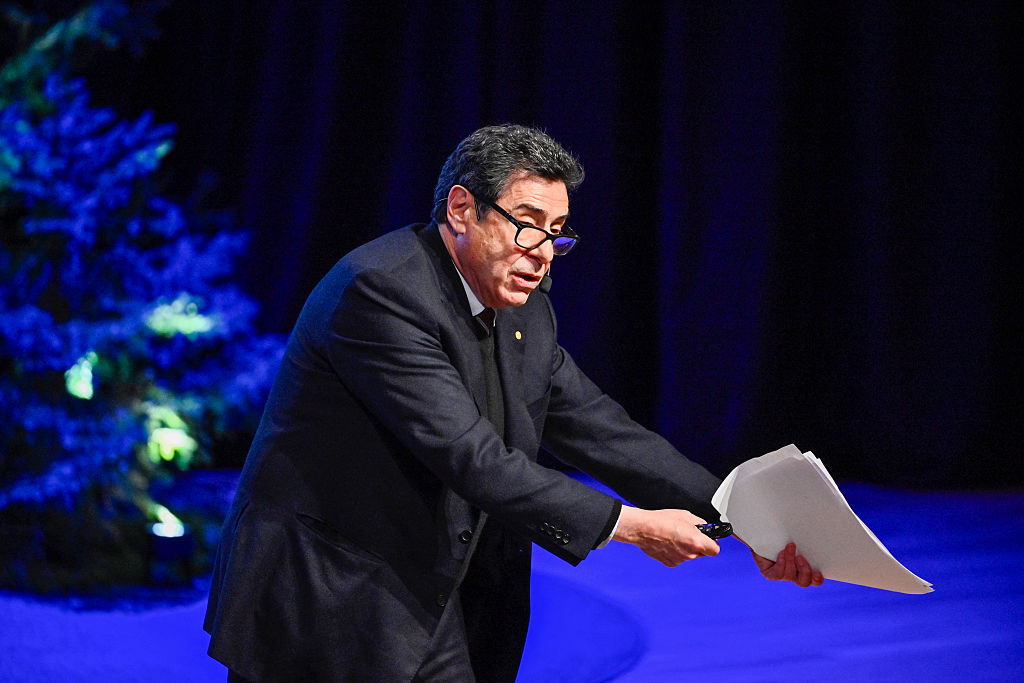Investors beware: inflation will return
Central bankers have unleashed unprecedented monetary stimulus in response to the Covid-19 pandemic. For the moment inflation is quiescent. But that won't last.

Get the latest financial news, insights and expert analysis from our award-winning MoneyWeek team, to help you understand what really matters when it comes to your finances.
You are now subscribed
Your newsletter sign-up was successful
Want to add more newsletters?

Twice daily
MoneyWeek
Get the latest financial news, insights and expert analysis from our award-winning MoneyWeek team, to help you understand what really matters when it comes to your finances.

Four times a week
Look After My Bills
Sign up to our free money-saving newsletter, filled with the latest news and expert advice to help you find the best tips and deals for managing your bills. Start saving today!
Central bankers are behaving like “an ostrich putting its head in the sand”, says Charles Goodhart on voxeu.org. The guardians of the world’s currencies have unleashed unprecedented monetary stimulus in response to the pandemic. The US Federal Reserve’s balance sheet has soared by about $3trn since March to over $7trn, more than one-third of US GDP. It could be close to $10trn by year’s end. At £700bn, the Bank of England’s balance sheet is worth roughly one-quarter of Britain’s national income. History shows that “the correlation between monetary growth and inflation” is “as long as your arm”. Yet markets and many economists are strikingly blasé about the risks.
CPI could spike…
For the moment inflation is quiescent. The annual pace of UK consumer price inflation (CPI) in May was just 0.5%, the lowest rate in four years. Month-on-month readings of core US inflation have fallen for three months running. And markets expect the pattern to continue, says James Mackintosh in The Wall Street Journal. US bond prices currently imply that inflation will be below 1% over the next five years.
The argument runs that tumbling oil prices and mass unemployment make deflation the greater immediate danger, says Karen Ward in the Financial Times. Analysts fear that the developed world could follow Japan into stagnation. But energy markets will not remain oversupplied forever and consumer spending – artificially constrained by lockdowns – could “roar back” when restrictions are lifted. That demand surge will run into constrained supply as global supply chains struggle to ramp back up, resulting in higher prices. Within a year we will see that inflation is “very much alive and kicking”.
MoneyWeek
Subscribe to MoneyWeek today and get your first six magazine issues absolutely FREE

Sign up to Money Morning
Don't miss the latest investment and personal finances news, market analysis, plus money-saving tips with our free twice-daily newsletter
Don't miss the latest investment and personal finances news, market analysis, plus money-saving tips with our free twice-daily newsletter
…or rise gradually
The extreme political, health and economic events of recent years mean that the future contains an “extraordinarily wide range of possibilities”, from a deflationary spiral to a return to 1970s stagflation, reckons Neil Irwin in The New York Times. In the short-term inflation could be subject to a “yo-yo effect”: just look at how oil prices have alternately crashed and then staged a 100% rally in a matter of months. If inflation makes a comeback it may come not as a sudden spike, but as a gradual trend.
Sceptics say that this view has been proved wrong before. The global surge in quantitative easing after the financial crisis did not trigger a sustained rise in inflation. Yet as MoneyWeek pointed out recently, in 2020 two things are different. Firstly, the banks are in much better shape than they were in 2008, so extra cash seems more likely to be redirected into the real economy via loans rather than being used to plug massive holes in balance sheets.
Secondly, consumers’ debt is lower – indeed households have been paying down credit-card debt during the lockdown. That increases the chance of a spending surge once all of that pent-up demand can be released by economic re-opening.
Other trends also point towards a more inflationary 2020s. As Kenneth Rogoff says on Project Syndicate, globalisation has depressed the prices of many goods over recent decades, but the “post-pandemic world” is likely to be one where politicians and voters reject trade openness in favour of simpler and more local supply chains. That may bring more secure control over resources such as masks and medical equipment, but consumers will have to pay a premium for it.
Politicians learn to love rising prices
Politics is at the heart of the inflationary outlook, says Goodhart. Economists assure us that they “know how to deal” with inflation, but they forget that efforts to curb the price rises of the 1970s demanded painful interest rate rises. UK interest rates hit 17% in 1979. That triggered sharp recessions and mass unemployment.
There would be little political appetite for a repeat today. Populists of left and right are “not going to tolerate” spending cuts or interest rate hikes, says Eoin Treacy of Fuller Treacy Money. It is also far easier for left-wing radicals to argue for MMT (“modern monetary theory”, sometimes derisively dubbed the “magic money tree”) when central banks appear to be running a version of it already by “actively supplying governments with as much money as they require”.
After “hosing down the economy with cash” for the pandemic, policymakers will struggle to tell voters that they don’t have any money to spend, Albert Edwards of Société Générale tells Mackintosh. The shift towards more government spending is not confined to the political fringes either, adds Larry Elliott in The Guardian. UK government borrowing this year is heading towards a peacetime record, but “there is no appetite in the Conservative party for a repeat of Osborne’s austerity regime”.
Another reason the path of least political resistance implies higher spending, borrowing and inflation is that the easiest way to get rid of huge debts is through a rise in the general level of prices. If public borrowing is to soar then an inflationary spike – which erodes the real value of debt – will suit the world’s finance ministers just fine over the coming decades.
Gold set for hot summer
Not all markets are so complacent about the inflationary threat. The price of gold hit $1,760/oz this week, the highest level since October 2012. In UK sterling terms the yellow metal has already hit new record peaks. In a time of soaring government spending and an expanding money supply gold looks like an attractive store of value, Dominic O’Kane of JPMorgan tells Connor Smith on Barron’s.
Investors need a hedge against currency debasement and gold fits the bill, agrees John Authers on Bloomberg. It pays no interest, but in an era of negative government bond yields not many other “safe” assets do either. The gold market may be set for a “summer heatwave”.
Get the latest financial news, insights and expert analysis from our award-winning MoneyWeek team, to help you understand what really matters when it comes to your finances.
Alex is an investment writer who has been contributing to MoneyWeek since 2015. He has been the magazine’s markets editor since 2019.
Alex has a passion for demystifying the often arcane world of finance for a general readership. While financial media tends to focus compulsively on the latest trend, the best opportunities can lie forgotten elsewhere.
He is especially interested in European equities – where his fluent French helps him to cover the continent’s largest bourse – and emerging markets, where his experience living in Beijing, and conversational Chinese, prove useful.
Hailing from Leeds, he studied Philosophy, Politics and Economics at the University of Oxford. He also holds a Master of Public Health from the University of Manchester.
-
 ISA fund and trust picks for every type of investor – which could work for you?
ISA fund and trust picks for every type of investor – which could work for you?Whether you’re an ISA investor seeking reliable returns, looking to add a bit more risk to your portfolio or are new to investing, MoneyWeek asked the experts for funds and investment trusts you could consider in 2026
-
 The most popular fund sectors of 2025 as investor outflows continue
The most popular fund sectors of 2025 as investor outflows continueIt was another difficult year for fund inflows but there are signs that investors are returning to the financial markets
-
 Rachel Reeves is rediscovering the Laffer curve
Rachel Reeves is rediscovering the Laffer curveOpinion If you keep raising taxes, at some point, you start to bring in less revenue. Rachel Reeves has shown the way, says Matthew Lynn
-
 The enshittification of the internet and what it means for us
The enshittification of the internet and what it means for usWhy do transformative digital technologies start out as useful tools but then gradually get worse and worse? There is a reason for it – but is there a way out?
-
 What turns a stock market crash into a financial crisis?
What turns a stock market crash into a financial crisis?Opinion Professor Linda Yueh's popular book on major stock market crashes misses key lessons, says Max King
-
 ISA reforms will destroy the last relic of the Thatcher era
ISA reforms will destroy the last relic of the Thatcher eraOpinion With the ISA under attack, the Labour government has now started to destroy the last relic of the Thatcher era, returning the economy to the dysfunctional 1970s
-
 Why does Trump want Greenland?
Why does Trump want Greenland?The US wants to annex Greenland as it increasingly sees the world in terms of 19th-century Great Power politics and wants to secure crucial national interests
-
 Nobel laureate Philippe Aghion reveals the key to GDP growth
Nobel laureate Philippe Aghion reveals the key to GDP growthInterview According to Nobel laureate Philippe Aghion, competition is the key to innovation, productivity and growth – here's what this implies for Europe and Britain
-
 'Investors should brace for Trump’s great inflation'
'Investors should brace for Trump’s great inflation'Opinion Donald Trump's actions against Federal Reserve chair Jerome Powell will likely stoke rising prices. Investors should prepare for the worst, says Matthew Lynn
-
 The state of Iran’s collapsing economy – and why people are protesting
The state of Iran’s collapsing economy – and why people are protestingIran has long been mired in an economic crisis that is part of a wider systemic failure. Do the protests show a way out?